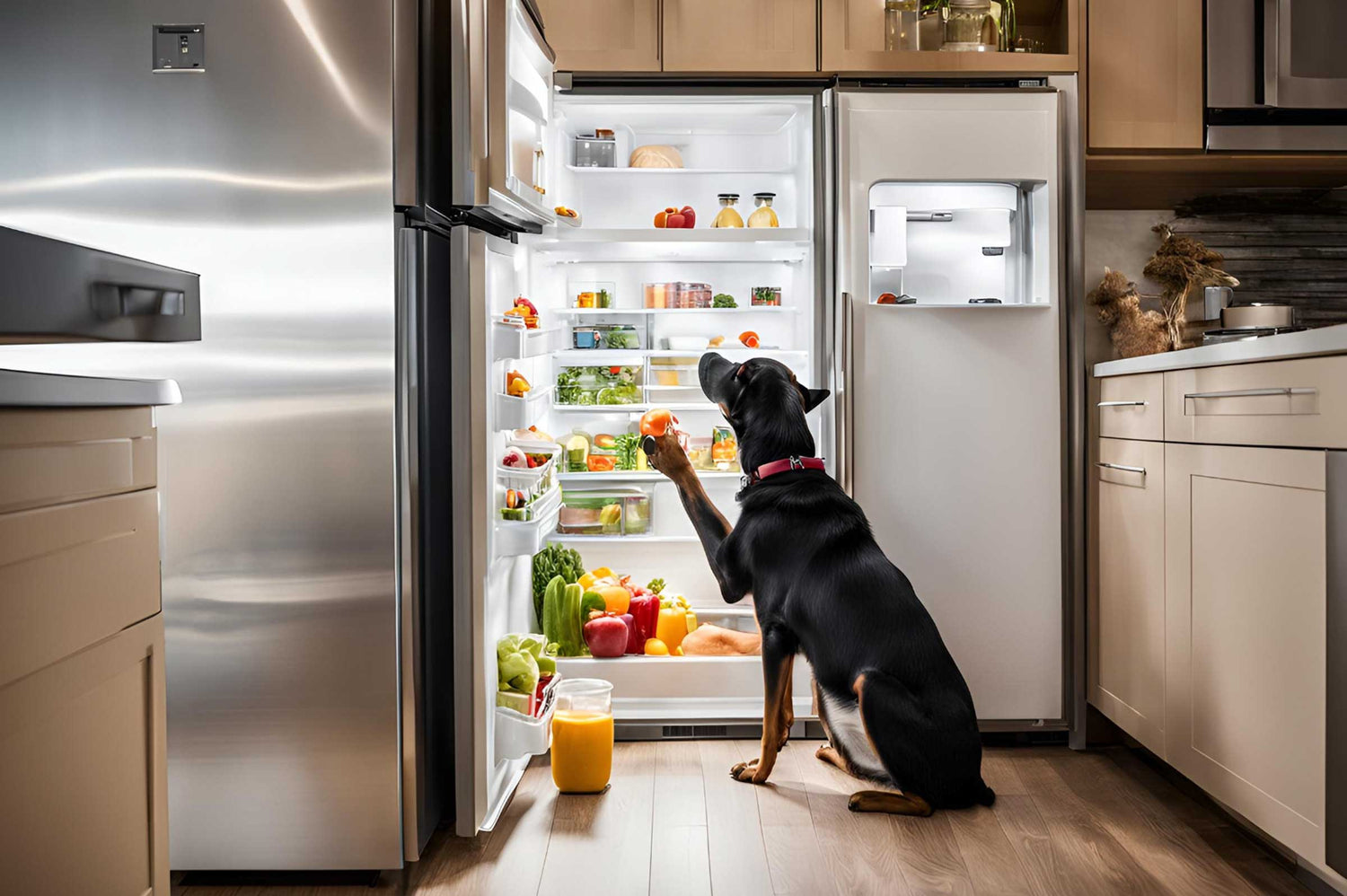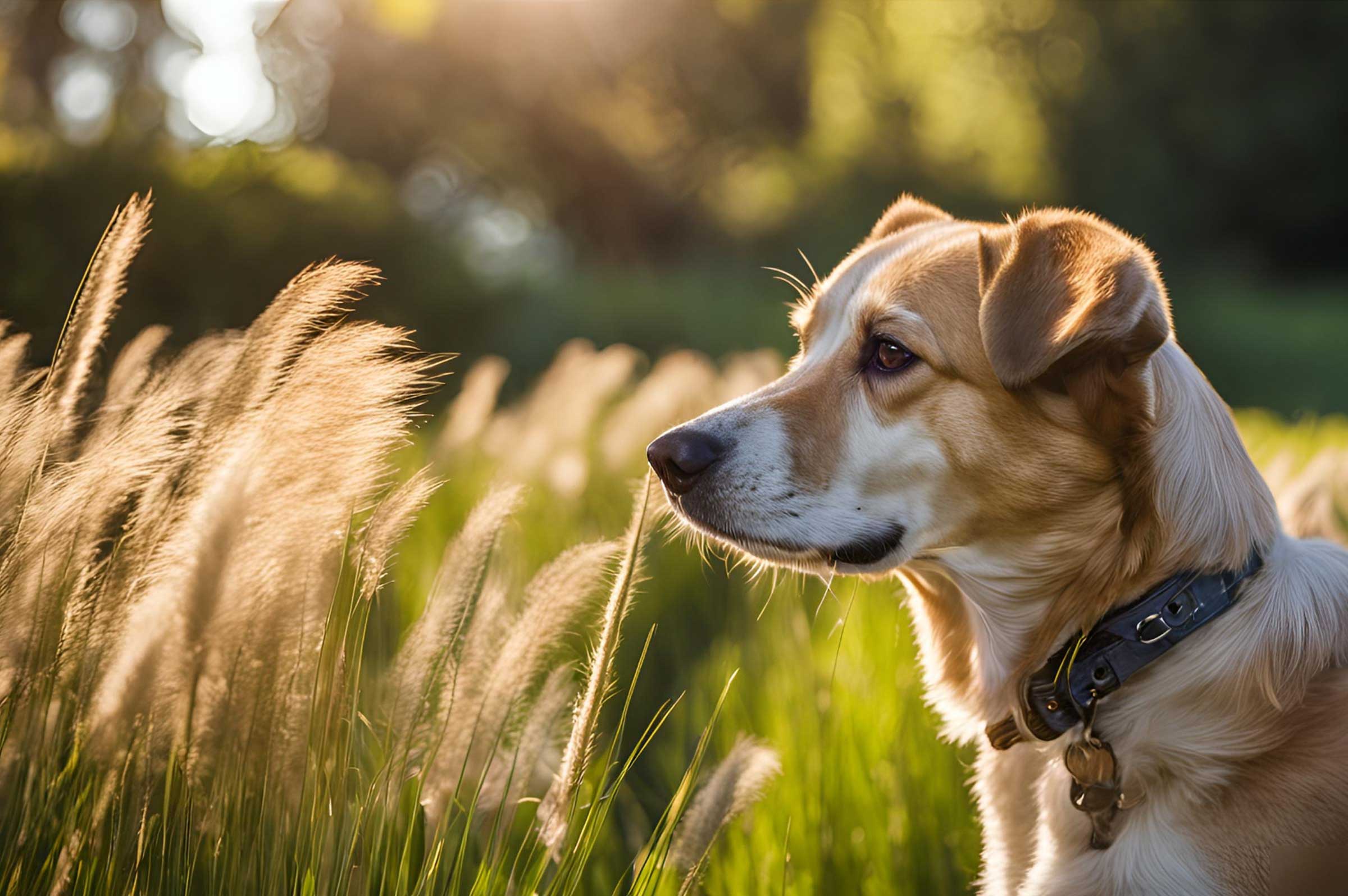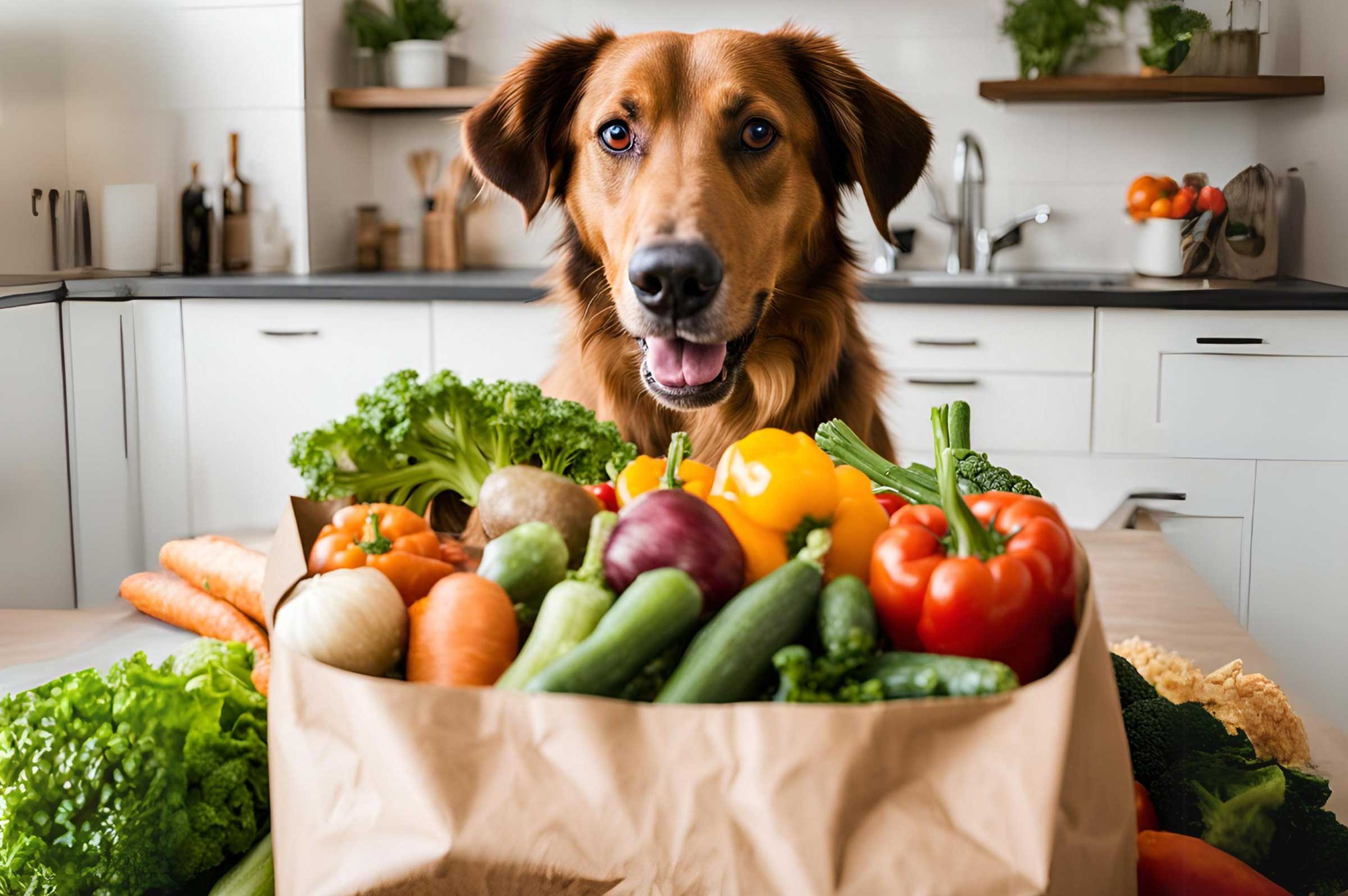If you want to know what foods are safe, and healthy, to feed your dog, you can read up on that here. And if you are worried about foods that are toxic to your dog, you can double check that information here!
Foods That Are Non-Toxic But Should Be Fed Sparingly
1. Can Dogs Eat Cheese?
Cheese is a popular treat among dog owners, and while it’s not toxic to dogs, it’s high in fat, which can lead to obesity and digestive issues. For dogs that are lactose intolerant, even small amounts of cheese can cause stomach upset. If you want to give your dog a cheesy treat, it’s best to do so sparingly and opt for low-fat varieties.
2. Is Bread Bad for Dogs?
Bread is another food that many dog owners offer as a treat, but it’s not without its drawbacks. Plain bread is non-toxic to dogs, but it provides little nutritional value. Feeding bread regularly can contribute to weight gain and offer empty calories that displace more nutritious food in their diet. Whole grain options are slightly better, but they still shouldn’t be a regular part of your dog’s meals.
3. Can Dogs Have Peanut Butter?
Peanut butter is often considered a safe treat for dogs, and it’s even used to administer medication. However, many brands of peanut butter contain added sugars and fats, which can contribute to obesity and dental problems. Additionally, some peanut butters contain xylitol, a sugar substitute that is highly toxic to dogs. Always check the label and choose a peanut butter that is free from xylitol and added sugars.
4. Is Ice Cream Safe for Dogs?
Ice cream might seem like a fun treat to share with your dog on a hot day, but it’s not the best choice for their health. Most dogs are lactose intolerant, meaning ice cream can cause diarrhea and other digestive issues. Additionally, ice cream is high in sugar and fat, which can contribute to obesity and other health problems. If you want to give your dog a frozen treat, consider a dog-friendly alternative made with safe ingredients.
5. Can Dogs Eat Processed Meats?
Processed meats like hot dogs, sausages, and deli meats are non-toxic to dogs, but they’re not healthy options. These foods are often high in salt, fat, and preservatives, which can lead to obesity, high blood pressure, and even pancreatitis. If you’re looking for a protein-packed treat for your dog, it’s better to stick with lean meats that aren’t processed or seasoned.
6. Are Potato Chips Safe for Dogs?
Potato chips are a snack that most humans enjoy, but they’re not suitable for dogs. These crispy treats are high in salt and fat, which can be harmful to your dog’s health. Eating potato chips can lead to dehydration, high blood pressure, and obesity. It’s best to keep these snacks to yourself and offer your dog healthier alternatives like carrot sticks or apple slices.
7. Can Dogs Eat Fried Foods?
Fried foods, like French fries or fried chicken, should be off-limits for dogs. While not toxic, these foods are typically high in fat, which can lead to digestive upset, obesity, and pancreatitis. The greasy nature of fried foods can also cause problems like diarrhea. If you want to give your dog a treat, opt for something that’s baked or boiled instead.
8. Is Corn on the Cob Dangerous for Dogs?
Corn itself is non-toxic to dogs and can be a source of fiber and vitamins. However, the cob can be extremely dangerous. Dogs may chew on the cob, which poses a choking hazard or can cause an intestinal blockage if swallowed. If you want to give your dog some corn, make sure it’s removed from the cob and served in moderation.
9. Can Dogs Eat Canned Tuna?
Canned tuna is non-toxic and a source of protein, but it’s not the healthiest choice for dogs. Canned tuna contains high levels of sodium and mercury, which can be harmful over time. It’s best to limit your dog’s intake of canned tuna and instead offer them fish that is lower in mercury, like salmon or sardines.
10. Is Pasta Bad for Dogs?
Plain pasta is non-toxic to dogs, but it doesn’t provide much nutritional value. Like bread, pasta is high in carbohydrates and can contribute to weight gain if fed regularly. If your dog enjoys pasta, offer it only occasionally and in small amounts, ensuring that it’s plain and free from sauces or seasonings that could be harmful.
11. Can Dogs Eat Asparagus?
Asparagus is a non-toxic vegetable that some dog owners might consider sharing. While it’s safe in small amounts, asparagus can be difficult for dogs to digest and may cause gastrointestinal upset. If you decide to give your dog asparagus, make sure it’s cooked and cut into small pieces to reduce the risk of choking.
12. Can Dogs Eat Bacon?
Bacon is a favorite among humans, but it’s not a healthy option for dogs. Although non-toxic, bacon is high in fat and salt, which can lead to obesity, pancreatitis, and other health issues. If you want to give your dog a special treat, there are many healthier alternatives available that won’t compromise their health.
13. Can Dogs Eat Pickles?
Pickles might seem like a harmless snack, but they’re often high in salt and vinegar, which can be harmful to dogs. While non-toxic, the high sodium content in pickles can lead to dehydration and high blood pressure. It’s best to avoid giving your dog pickles and choose a low-sodium, dog-friendly treat instead.
Foods That Are Toxic to Dogs
14. Chocolate: A Sweet Treat That’s Not So Sweet for Dogs
Chocolate might be one of our favorite indulgences, but for dogs, it’s anything but sweet. Chocolate contains theobromine, a compound that’s toxic to dogs. Even small amounts can lead to serious health issues like vomiting, diarrhea, rapid breathing, increased heart rate, and seizures. The darker the chocolate, the more dangerous it is, so be sure to keep all chocolate treats well out of your dog’s reach.
15. Grapes and Raisins: A Tiny Fruit with Big Consequences
You might think grapes and raisins are harmless, but these small fruits can cause big problems for dogs. Ingesting grapes or raisins can lead to sudden kidney failure, which can be life-threatening. Symptoms include vomiting, lethargy, and loss of appetite. Since it’s unclear why some dogs are more susceptible than others, it’s best to avoid feeding them grapes and raisins altogether.
16. Onions and Garlic: More Than Just Bad Breath
Onions and garlic may add flavor to your meals, but they’re a recipe for disaster when it comes to your dog’s health. These ingredients contain compounds that can damage a dog’s red blood cells, leading to anemia. Whether raw, cooked, or in powdered form, onions and garlic can be harmful even in small amounts. Symptoms of onion or garlic toxicity include weakness, vomiting, and breathlessness.
17. Avocado: A Superfood for You, but Not for Your Dog
While avocados are celebrated as a superfood for humans, they’re not so super for dogs. Avocados contain a toxin called persin, which can cause vomiting, diarrhea, and heart congestion in dogs. The highest concentration of persin is found in the skin, leaves, and pit of the avocado, but it’s best to keep the whole fruit away from your dog to be safe.
18. Alcohol: No Happy Hour for Dogs
Alcohol can be harmful to dogs even in small amounts. Unlike humans, dogs are highly sensitive to alcohol, and ingesting it can lead to vomiting, diarrhea, coordination problems, difficulty breathing, coma, and even death. Whether it’s beer, wine, or spirits, make sure your dog doesn’t have access to any alcoholic beverages.
19. Macadamia Nuts: A Nutty Problem
Macadamia nuts might be a tasty snack for you, but they’re a serious threat to your dog’s health. Ingesting even a small amount can cause weakness, depression, vomiting, tremors, and hyperthermia in dogs. These symptoms can appear within 12 hours of ingestion and may last up to 48 hours. To keep your dog safe, avoid sharing any foods containing macadamia nuts.
20. Xylitol: The Sweetener with a Bitter Side
Xylitol, a common artificial sweetener found in sugar-free products like gum and candy, is extremely toxic to dogs. When ingested, xylitol can cause a rapid release of insulin, leading to a dangerous drop in blood sugar levels (hypoglycemia). Symptoms of xylitol poisoning include vomiting, loss of coordination, seizures, and in severe cases, liver failure and death. Always check labels for xylitol and keep such products far away from your dog.
21. Caffeine: A Buzz Your Dog Doesn’t Need
Caffeine, found in coffee, tea, energy drinks, and certain medications, can be highly toxic to dogs. Even small amounts can lead to restlessness, rapid breathing, heart palpitations, muscle tremors, and seizures. In severe cases, caffeine poisoning can be fatal. If your dog consumes anything containing caffeine, it’s crucial to seek veterinary attention immediately.
22. Cooked Bones: More Dangerous Than They Look
Cooked bones might seem like a fun treat for your dog, but they can be incredibly dangerous. Cooking causes bones to become brittle, increasing the risk of splintering, which can cause choking or serious damage to your dog’s digestive tract. Instead of cooked bones, opt for safer alternatives like specially designed dog chews.
23. Raw Dough with Yeast: Rising Danger
If you’re baking bread or pastries, be sure to keep the raw dough away from your dog. Raw dough containing yeast can expand in a dog’s stomach, causing severe pain and potentially life-threatening bloating. As the yeast ferments, it produces alcohol, which can lead to alcohol poisoning as well. Always keep raw dough out of your dog’s reach to avoid these dangers.
24. Salt: A Little Goes a Long Way—Too Long
While a pinch of salt might enhance the flavor of your food, too much salt can be harmful to your dog. Excessive salt intake can lead to sodium ion poisoning, which can cause vomiting, diarrhea, tremors, elevated body temperature, seizures, and even death. It’s best to keep salty snacks and table scraps away from your dog to prevent any risk.
25. Fatty Foods: Too Much of a Good Thing
Foods high in fat, like fried foods, might seem like a tasty treat for your dog, but they can lead to serious health problems. Fatty foods can cause pancreatitis, a painful and potentially life-threatening inflammation of the pancreas. Symptoms include vomiting, diarrhea, and severe abdominal pain. To keep your dog healthy, avoid feeding them fatty foods.
26. Cherries: Not as Sweet as They Seem
Cherries may look appealing, but they’re not a safe snack for dogs. The pits of cherries contain cyanide, a substance that’s toxic to dogs. Ingesting cherry pits can lead to difficulty breathing, dilated pupils, and red gums. If your dog eats cherries, it’s important to watch for these symptoms and contact your veterinarian if you’re concerned.
Keeping Your Dog Healthy
In summary, while many human foods are non-toxic to dogs, they aren’t always healthy options. Feeding your dog a balanced diet specifically formulated for their nutritional needs is the best way to ensure their long-term health and well-being. Before introducing any new foods into your dog’s diet, it’s always a good idea to consult with your veterinarian. Remember, just because a food is safe for humans doesn’t mean it’s safe—or healthy—for your dog.
By being mindful of what you feed your dog, you can help them live a longer, healthier, and happier life. In addition to keeping your dog well fed with good food, VetSmart Formulas have the supplements your furry friend needs to stay happy and healthy!











